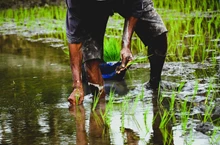
A high-tech dairy farm in Bosnia is among the first to convert biogas from animal faeces and silage into electricity, aiming to become self-sufficient at a time when high energy prices threaten the subsidy-dependent agricultural sector.
It can generate more electricity in an hour than the average home consumes in a month. Energy production began in September, operating at 50%-60% capacity due to regulatory requirements, but once fully operational, it will be capable of producing 600-kilowatt hours.
It comes at a time when fertilizer, food, and energy prices have skyrocketed as a result of Russia's invasion of Ukraine. The concept of converting cow and chicken faeces, corn silage, and other organic waste on the farm into biogas began almost a decade ago, according to farm director Said Karic.
According to Karic and project leader Mirsad Tursunovic, it is the first of its kind in Bosnia's autonomous Bosniak-Croat Federation. "It was intended to crown the existing processes at the farm," Karic said at the Sarajevo Milkos dairy industry's farm, which spans 800 hectares of its own and leased land and can house 2,000 high-yielding cattle.
The farm's scheme, which already employs automation and high-tech machinery, is supported by the government and funded by Sarajevo Milkos. "This is a step toward conformity with European standards... and represents an economic model that can be developed to improve the business's economics, despite the fact that primary agriculture production is low profit," Karic added.
Bosnia, where energy production accounts for approximately 20% of GDP, is the Balkans' sole electricity exporter, with approximately 60% produced by coal-fired plants and the remainder primarily by hydropower.
Its two regions, the Bosniak-Croat Federation and the Serb Republic, have pledged to increase the share of renewable energy produced by 2030, but the energy crisis caused by the war in Ukraine has slowed those plans.
The thermal energy generated during biogas fermentation is also used to heat some farm buildings. "Our long-term plan is to build greenhouses that will also be heated by this thermal energy," Karic explained.











